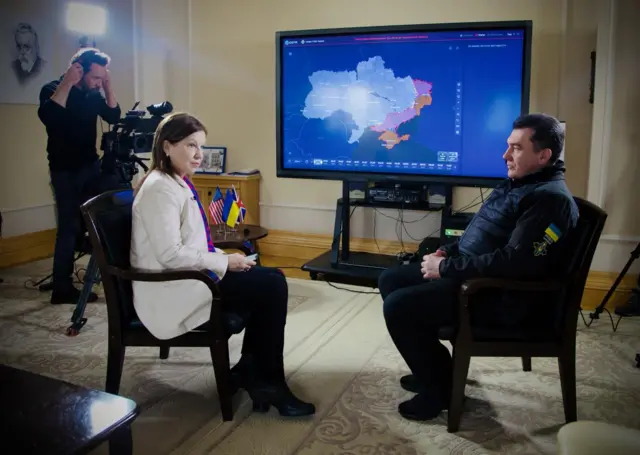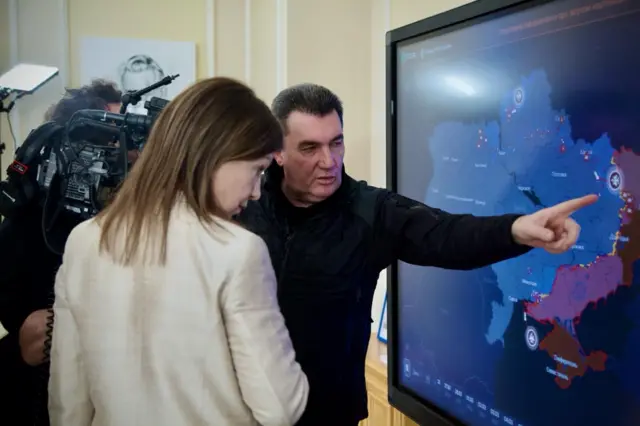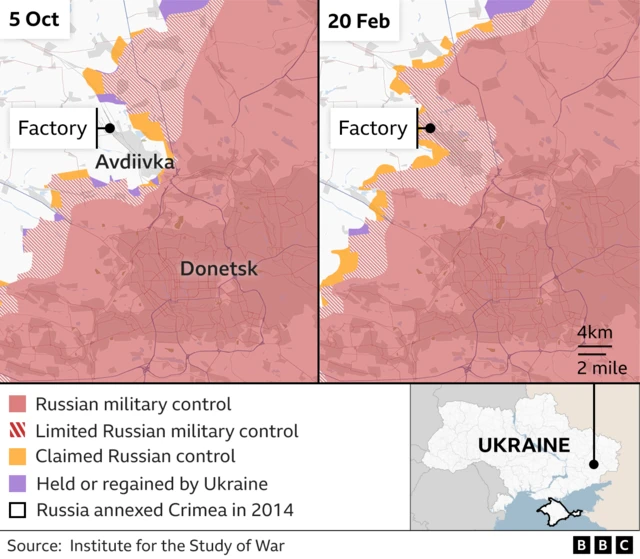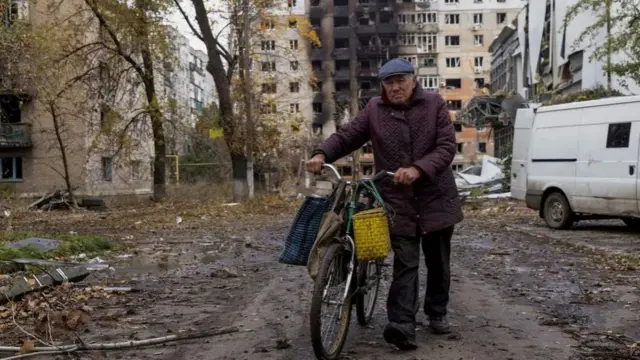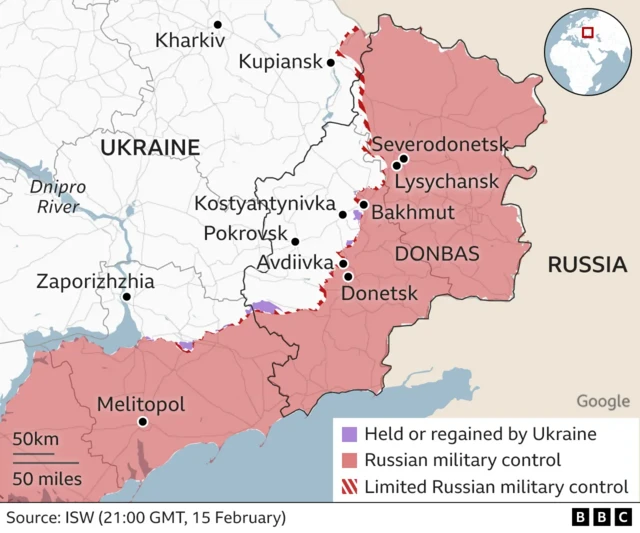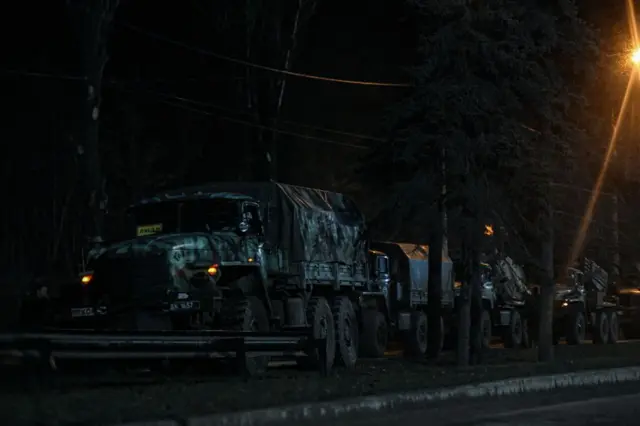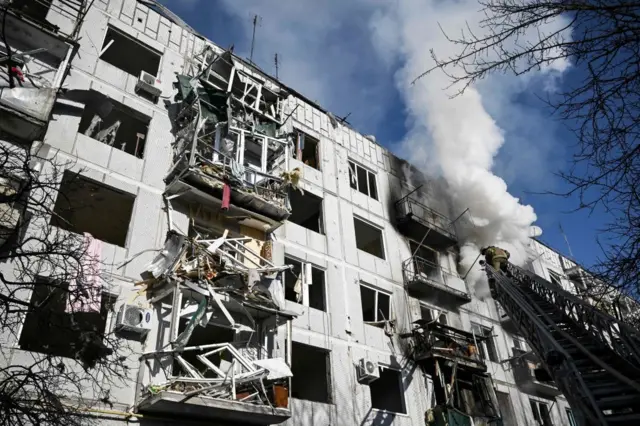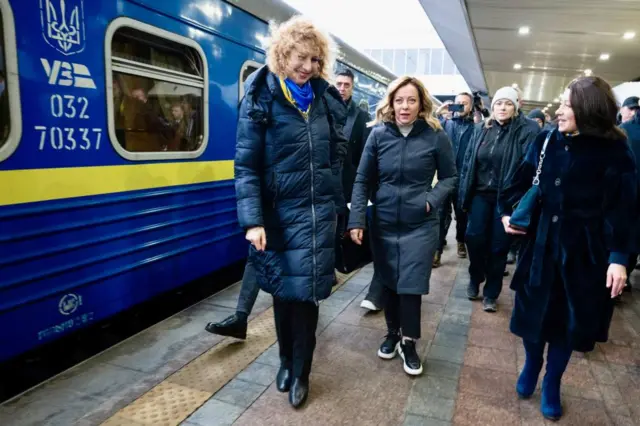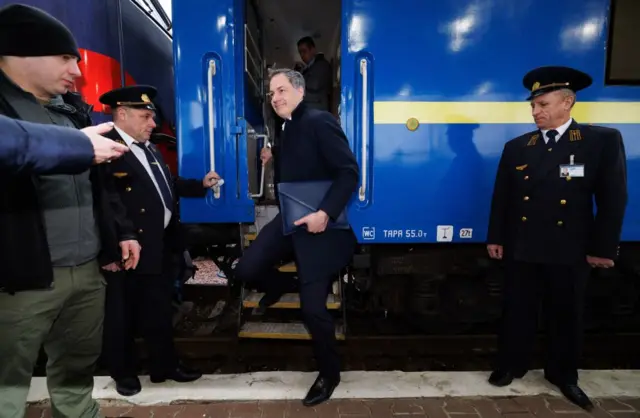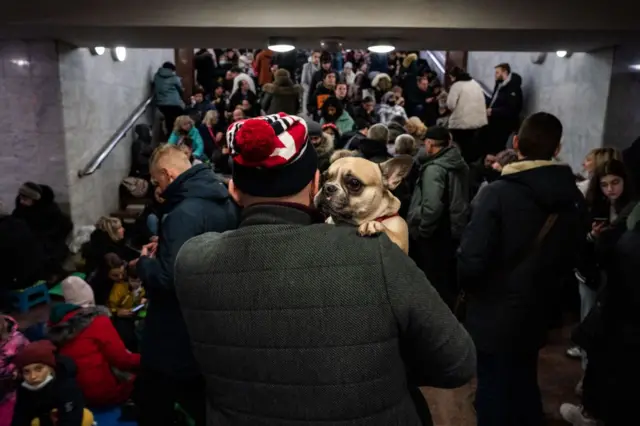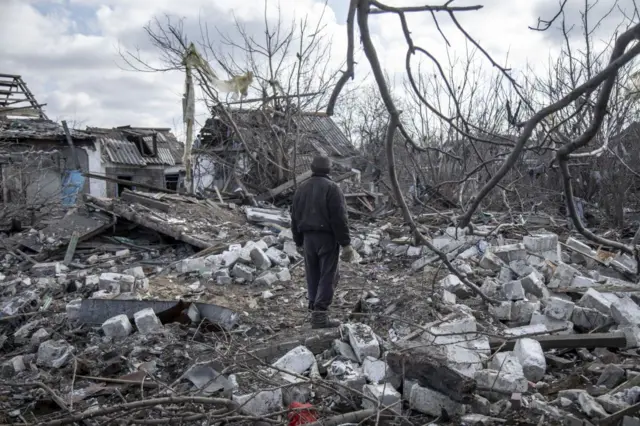Missiles and drones hit Ukrainian cities overnightpublished at 08:43 GMT 24 February 2024
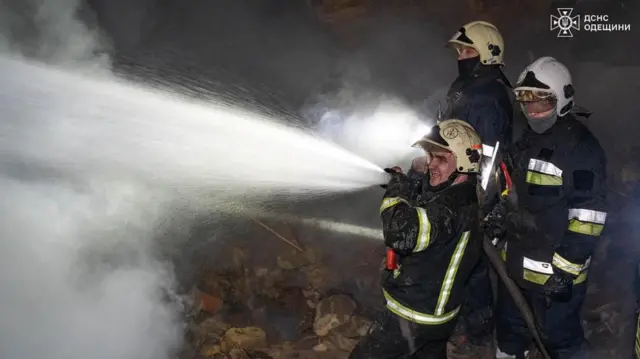 Image source, State Emergency Service of Ukraine via Reuters
Image source, State Emergency Service of Ukraine via ReutersFirefighters tackle a blaze at a residential building damaged by a Russian drone strike in Odesa
Russian attacks on Ukrainian cities continue, with another round of missile and drone strikes across the country overnight.
One person has been killed in the southern port city of Odesa.
Another three people have been wounded by a drone crashing into a residential building after being shot down by Ukraine's air defences.
Three other deaths have been reported elsewhere in Ukraine.

